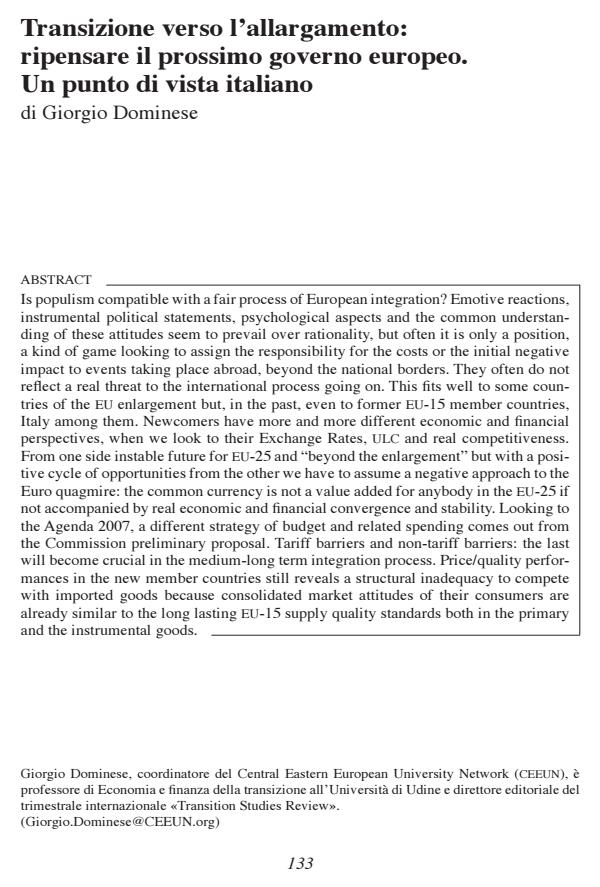Transizione verso l'allargamento: ripensare il prossimo governo europeo. Un punto di vista italiano
Journal title ECONOMIA PUBBLICA
Author/s Giorgio Dominese
Publishing Year 2005 Issue 2005/4
Language Italian Pages 11 P. File size 509 KB
DOI
DOI is like a bar code for intellectual property: to have more infomation
click here
Below, you can see the article first page
If you want to buy this article in PDF format, you can do it, following the instructions to buy download credits

FrancoAngeli is member of Publishers International Linking Association, Inc (PILA), a not-for-profit association which run the CrossRef service enabling links to and from online scholarly content.
Is populism compatible with a fair process of European integration? Emotive reactions, instrumental political statements, psychological aspects and the common understanding of these attitudes seem to prevail over rationality, but often it is only a position, a kind of game looking to assign the responsibility for the costs or the initial negative impact to events taking place abroad, beyond the national borders. They often do not reflect a real threat to the international process going on. This fits well to some countries of the EU enlargement but, in the past, even to former EU-15 member countries, Italy among them. Newcomers have more and more different economic and financial perspectives, when we look to their Exchange Rates, ULC and real competitiveness. From one side instable future for EU-25 and beyond the enlargement but with a positive cycle of opportunities from the other we have to assume a negative approach to the Euro quagmire: the common currency is not a value added for anybody in the EU-25 if not accompanied by real economic and financial convergence and stability. Looking to the Agenda 2007, a different strategy of budget and related spending comes out from the Commission preliminary proposal. Tariff barriers and non-tariff barriers: the last will become crucial in the medium-long term integration process. Price/quality performances in the new member countries still reveals a structural inadequacy to compete with imported goods because consolidated market attitudes of their consumers are already similar to the long lasting EU-15 supply quality standards both in the primary and the instrumental goods.
Giorgio Dominese, Transizione verso l'allargamento: ripensare il prossimo governo europeo. Un punto di vista italiano in "ECONOMIA PUBBLICA " 4/2005, pp , DOI: